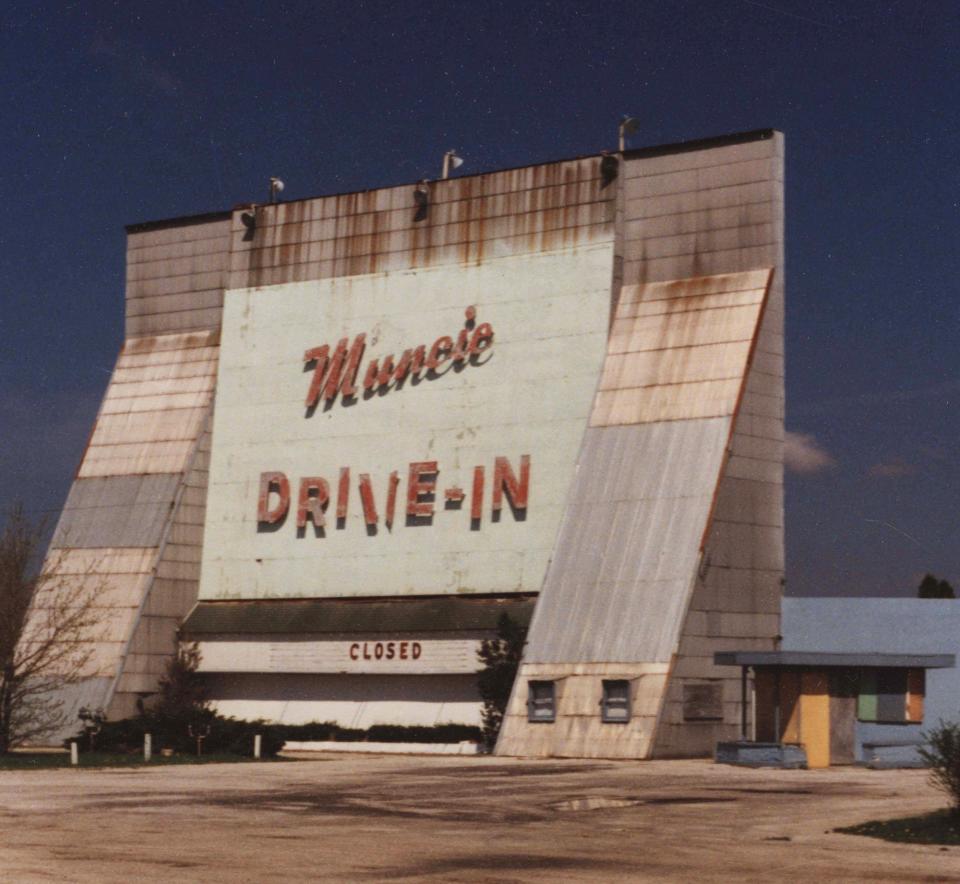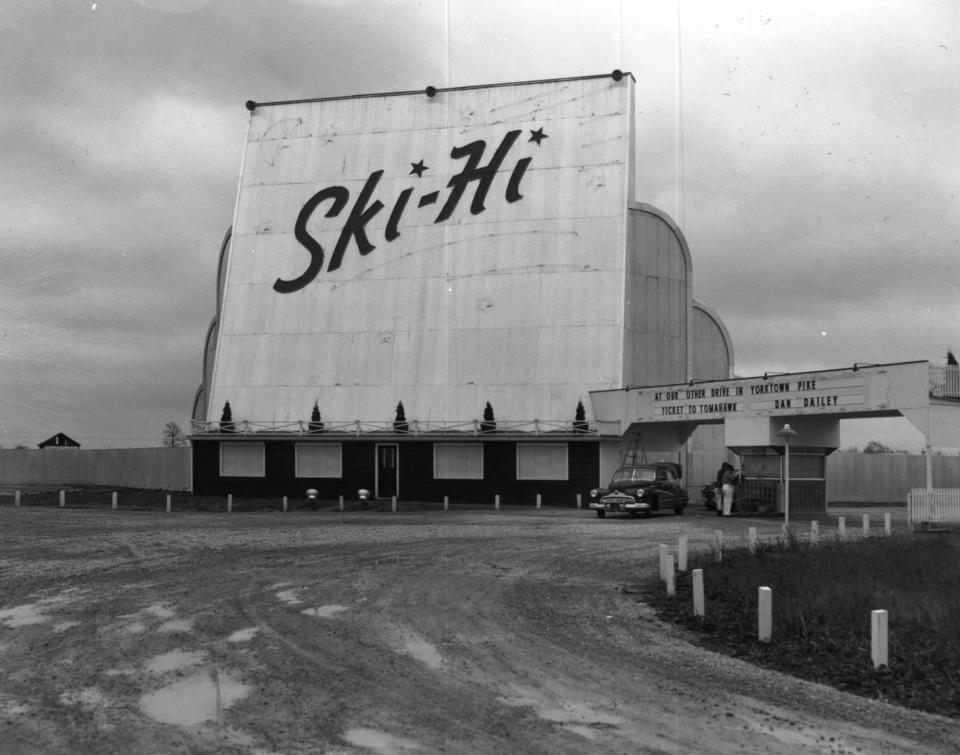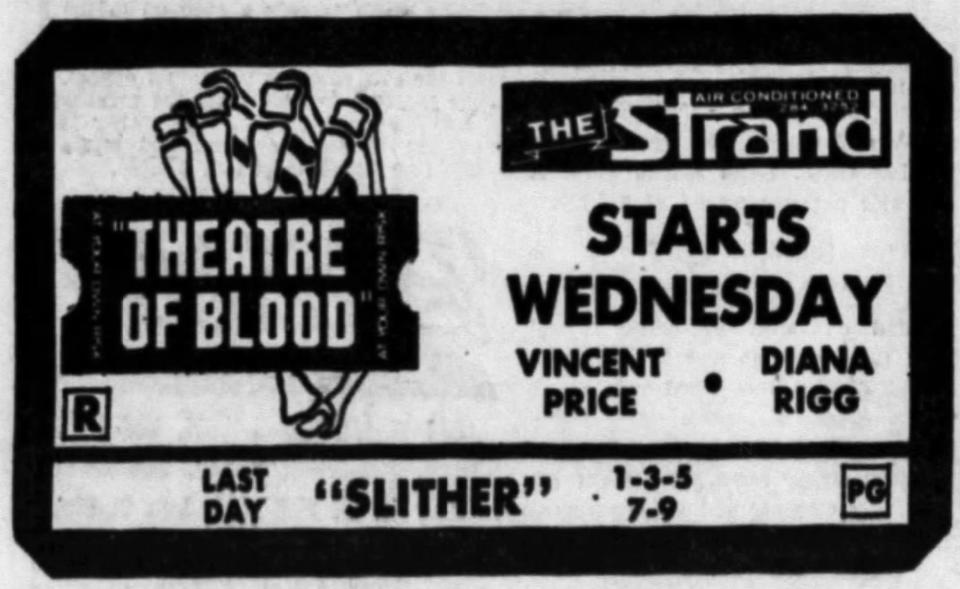ByGone Muncie: A snapshot of life in Muncie on June 5, 1973
MUNCIE, Ind. – Periodically throughout the 20th century, the Muncie Evening Press would publish a column titled something like, “50 and 25 Years Ago Today.”
As the name implied, the articles recapped Muncie’s history for the date at 25-year intervals. The paper often just reprinted ledes — first paragraphs — from old articles, succinct memorials of the mundane from years gone by.
For example, 80 years ago today on June 5, 1943, the Muncie Evening Press wrote in their “Muncie 25 and 50 Years Ago” column, that on June 5, 1893, the Whitely Harvesting Works was churning out reapers at a rapid pace: “a novel sight was witnessed by Muncie citizens which shows this factory has not been asleep. A large number of harvesting machines were delivered to farmers living near Muncie.”

Twenty-five years later, on June 5, 1918, the Press recounted, “Fred Puckett, chief of city detectives, was in circuit court Tuesday on matters connected with bootlegging cases.” Foreshadowing the decade to come, Puckett told the court that, while Muncie’s saloons had all ostensibly closed under the 18th Amendment, “bootlegging had not altogether stopped, it is kept under cover.”
Columns like this provided readers with a bit of nostalgia, but also with historical anecdotes illuminating the world of their forebears. For historians, at least for me, they’re wormholes through time, reference points leaping back generations to Munsonians of long forgotten eras.
Muncie endures wet weather and Watergate in 1973
Fifty years ago, on Tuesday, June 5, 1973, Munsonians lived in a world at the brink of summer. They also lived under the shadow of the Senate Watergate Committee Hearings, by then three weeks in. The Press ran a wire story on the front page that evening, recapping the day’s testimony: “The Senate’s Watergate committee today refused to delay its televised hearings, then heard a former Nixon campaign secretary (Sally Harmony) testify that she typed wiretap logs, intelligence memoranda and a phony Democratic document.” All three networks (ABC, NBC, CBS) telecast the hearings daily. National Public Radio even provided live, gavel-to-gavel coverage.
The good citizens of Muncie that June 5, 1973 also lived under literal storm clouds. The gauge at Muncie Water Works measured 2.28 inches of rainfall for the previous 24 hours. The Evening Press wrote that standing water was “reported at Willard and Elliott streets, Memorial Drive and Port Avenue, and 20th and Walnut.” Flooding even “closed the underpass in the 600 block of South Madison for a short while.”

Rains had delayed farming across east central Indiana that spring. Only about 60-70% of the county’s corn crop had been planted by June 5, 1973. Flooding especially plagued farmers in the northern part of Delaware County and “in some instances have flooded out portions of fields.”
The weather even wrought havoc on high school baseball sectionals. The Star reported all games delayed, because both Delta and Yorktown’s “diamonds were reported to be at least partially under water by Tuesday afternoon.”
But it wasn’t all bad news in the world of sports. Olive Wehlage hit a hole-in-one at Maplewood Golf Course with her 7-iron. The next day, the Star published a photo of Forest Park Elementary’s girls softball team. The Bulldogs had crushed competitors that spring to become city champions after a 7-1 season.
What teachers were paid in 1974
Schools were wrapping up the academic year at board meetings across Delaware County that Tuesday. At the Del-Com meeting, the school board voted to raise teacher pay 3% beginning Jan. 1, 1974. New salaries ranged from $7,210 for incoming teachers with a bachelors degree to $12,515 for teachers with 20 years of experience and a master’s.
Perhaps to the ire of the city’s school-aged children, Muncie Community Schools announced that summer school classes would begin the following Monday. However, the school’s administrative assistant William Lyon noted that attendance was down 30%, because Muncie offered “other activities to do during the summer.”
Muncie expands summer program for children of all ages
The “other activities” was likely in reference to a vast recreational summer program being offered in Muncie that year, a joint effort between the city’s Parks and Recreation Department and MCS. Boosters took out full page ads in both the Press and Star on June 5 under the banner, “Your Guide to Fun in the Sun.”
The program aimed to provide “healthful recreation” to Munsonians of all ages, including play centers for children at parks across the city. Middle-schoolers could attend tennis, swimming, or music lessons at an open city school or square dancing at Prairie Creek Reservoir. The program also offered girls and boys slow pitch baseball leagues, with games played at Wilson Middle School and at the fields in Westside, Heekin, and Thomas parks. Something called “Industrial Baseball” was offered to men 18 and over at a diamond near the Field House.
Movie theaters and drive-ins bring Hollywood to Muncie
For those seeking visual recreation, the city’s movie theaters offered Munsonians a sundry of films. The Northwest Plaza Cinema ran the "Legend of Boggy Creek" and "Camelot," while Delaware Cinema on North Wheeling played "Sisters," starring Margot Kidder. The Rivoli screened Sam Peckinpaugh’s "Pat Garrett and Billy the Kid" downtown, while the Strand featured "Slither" and heavily promoted Vincent Price’s upcoming horror film, "Theatre of Blood."

The summer of 1973 was still a good time to catch a movie at a drive-in theater. Ski-Hi north of Muncie featured "Bummer" and "Sweet Sugar," while Muncie Drive-In on S.R. 32 near Yorktown offered "The Poseidon Adventure" and "Salzburg Connection." The Blackford Drive-In, known mostly for porn in the early 1970s, featured no less than three libidinous tales on June 5, "Hot Channels," "Here I am Doctor," and "Morning After."
Shopping at 1973 prices
Munsonians out for a good deal that June 5 could try Gommel’s Meat Market on 9th and Port. Gommel’s offered pork tenderloins that week for $1.19/lb and three pounds of ham salad for $1.89. For those dining out, Pizza King, with nine convenient Muncie locations in 1973, was advertising a spaghetti supper for 99 cents between 4 p.m. and midnight.
Residents leaving for vacation could catch one of nine daily buses to Indianapolis or three to Fort Wayne via the ABC Coach/Trailways terminal at 316 Howard St. Over at Johnson Field, Allegheny Airlines offered flights from Muncie to Boston (with a stop in Indy) for $54, NYC for $65, and St. Louis for $35. Allegheny boasted: “eliminate driving and parking problems at Indianapolis. FREE PARKING AT MUNCIE AIRPORT.”
There’s nothing particularly special about June 5, 1973. It’s just a snapshot of our city from a half-century ago on this date. Yet despite the distance in time, this "remember when" shows us perhaps that our forebears resided in a world not that dissimilar to our own.
Chris Flook is a Delaware County Historical Society board member and a Senior Lecturer of Media at Ball State University.
This article originally appeared on Muncie Star Press: ByGone Muncie: Looking back at Muncie on June 5, 1973

